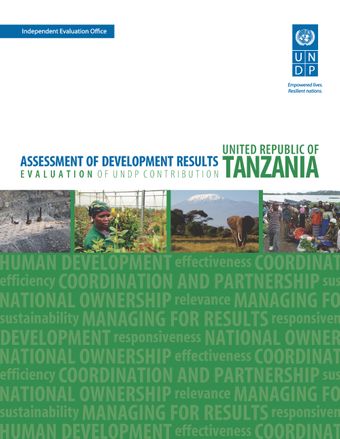Assessment of Development Results
This series assesses the attainment of intended and achieved results as well as United Nations Development Programme (UNDP) contributions to development results at the country level. Their scope include, but is not confined to, UNDP responsiveness and alignment to country challenges and priorities; strategic positioning; use of comparative advantage; and engagement with partners. The number and selection of countries, and the timing of these evaluations, are determined to ensure coverage and to allow findings and recommendations to feed into the preparation of the subsequent programme. Wherever possible, these evaluations will be conducted in conjunction with other United Nations organizations.
Filter :
Sustainable Development Goals
موضوع
تاريخ النشر
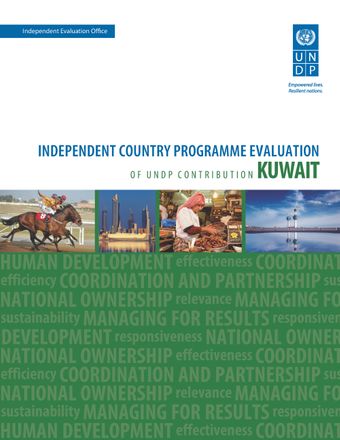
Independent Country Programme Evaluation of UNDP Contribution - Kuwait
The Independent Evaluation Office (IEO) of the United Nations Development Program (UNDP) conducts country evaluations called “Independent Country Programme Evaluations (ICPEs)” to capture and demonstrate evaluative evidence of UNDP’s contributions to development results at the country level, as well as the effectiveness of UNDP’s strategy in facilitating and leveraging national effort for achieving development results. The ICPE for Kuwait was conducted in 2017 as the UNDP Kuwait country programme ends in 2018. Results are expected to feed into the development of the new country programme.
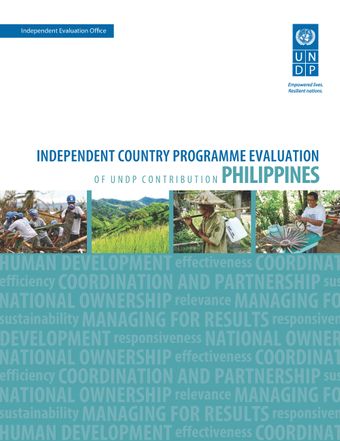
Assessment of Development Results - Philippines (Second Assessment)
Independent Country Programme Evaluation of UNDP Contribution
The Independent Evaluation Office (IEO) of the United Nations Development Program (UNDP) conducts country evaluations called “Independent Country Programme Evaluations (ICPEs)” to capture and demonstrate evaluative evidence of UNDP’s contributions to development results at the country level, as well as the effectiveness of UNDP’s strategy in facilitating and leveraging national effort for achieving development results. This is the second ICPE for the Philippines conducted in 2017, towards the end of the current UNDP programme cycle of 2012-2018. The first ICPE for the Philippines was conducted in 2009. The current evaluation results are expected to feed into the development of the new country programme.

Assessment of Development Results - Republic of Congo (Second Assessment)
Independent Country Programme Evaluation of UNDP Contribution
The Independent Evaluation Office (IEO) of the United Nations Development Program (UNDP) conducts country evaluations called “Independent Country Programme Evaluations (ICPEs)” to capture and demonstrate evaluative evidence of UNDP’s contributions to development results at the country level, as well as the effectiveness of UNDP’s strategy in facilitating and leveraging national effort for achieving development results. This is the second ICPE for the Republic of Congo conducted in 2017, towards the end of the current UNDP programme cycle of 2014-2018. The first ICPE for Congo was conducted in 2009.The current evaluation results are expected to feed into the development of the new country programme.
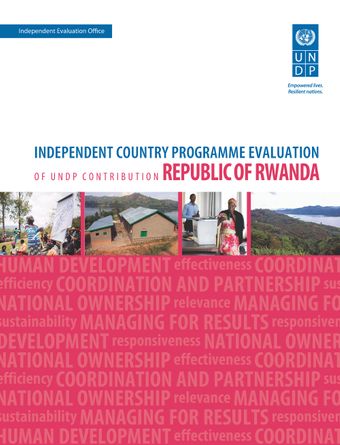
Assessment of Development Results - Republic of Rwanda (Second Assessment)
Independent Country Programme Evaluation of UNDP Contribution
The Independent Evaluation Office (IEO) of the United Nations Development Program (UNDP) conducts country evaluations called “Independent Country Programme Evaluations (ICPEs)” to capture and demonstrate evaluative evidence of UNDP’s contributions to development results at the country level, as well as the effectiveness of UNDP’s strategy in facilitating and leveraging national effort for achieving development results. This is the second ICPE for Rwanda conducted in 2017, towards the end of the current UNDP programme cycle of 2014-2017. The first ICPE for Rwanda was conducted in 2007. The current evaluation results are expected to feed into the development of the new country programme.
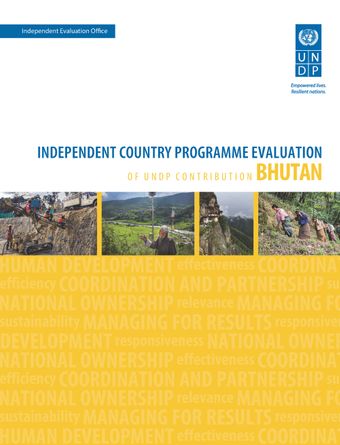
Assessment of Development Results - Bhutan (Second Assessment)
Independent Country Programme Evaluation of UNDP Contribution
The Independent Evaluation Office (IEO) of the United Nations Development Program (UNDP) conducts country evaluations called “Independent Country Programme Evaluations (ICPEs)”, formerly known as “Assessment of Development Results”, to capture and demonstrate evaluative evidence of UNDP’s contributions to development results at the country level, as well as the effectiveness of UNDP’s strategy in facilitating and leveraging national effort for achieving development results. This is the second ICPE for Bhutan conducted in 2017, towards the end of the current UNDP programme cycle of 2014-2018. The first ICPE for Bhutan was conducted in 2007, before the new programme cycle of 2008-2014. The current evaluation results are expected to feed into the development of the new country programme.
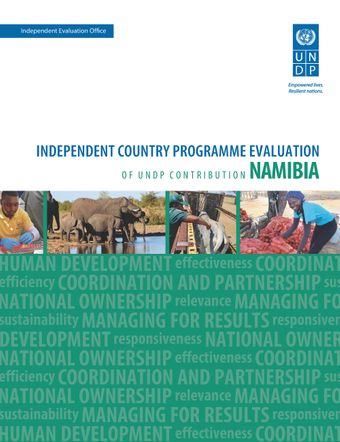
Assessment of Development Results - Namibia
Independent Country Programme Evaluation of UNDP Contribution
The Independent Evaluation Office (IEO) of the United Nations Development Program (UNDP) conducts country evaluations called “Independent Country Programme Evaluations (ICPEs)" to capture and demonstrate evaluative evidence of UNDP’s contributions to development results at the country level, as well as the effectiveness of UNDP’s strategy in facilitating and leveraging national effort for achieving development results. The ICPE for Namibia was conducted in 2017 as the UNDP Namibia country programme ends in 2018. Results are expected to feed into the development of the new country programme.
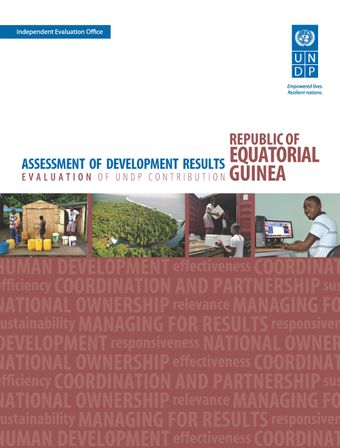
Assessment of Development Results - Equatorial Guinea
Evaluation of UNDP Contribution
The Independent Evaluation Office (IEO) of the United Nations Development Program (UNDP) conducts country evaluations called “Assessments of Development Results (ADRs)” to capture and demonstrate evaluative evidence of UNDP’s contributions to development results at the country level, as well as the effectiveness of UNDP’s strategy in facilitating and leveraging national effort for achieving development results. This is the first ADR for Equatorial Guinea, and will be conducted in 2016 towards the end of the current UNDP programme cycle of 2013-2017, with a view to contributing to the preparation of UNDP’s new programme starting from 2018, which is guided by the forthcoming United Nations Development Assistance Framework (UNDAF) for Equatorial Guinea starting in the same year.
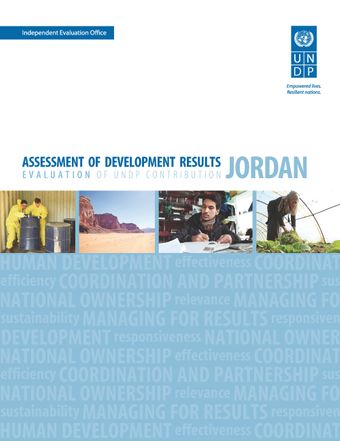
Assessment of Development Results - Jordan (Second Assessment)
The Independent Evaluation Office (IEO) of the United Nations Development Program (UNDP) conducts country evaluations called “Assessments of Development Results (ADRs)” to capture and demonstrate evaluative evidence of UNDP’s contributions to development results at the country level.
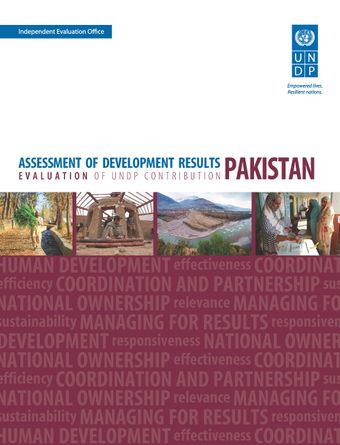
Assessment of Development Results - Pakistan
Evaluation of UNDP Contribution
The Independent Evaluation Office (IEO) of the United Nations Development Program (UNDP) conducts country evaluations called “Assessments of Development Results (ADRs)” to capture and demonstrate evaluative evidence of UNDP’s contributions to development results at the country level. UNDP has been present in Cameroon since 10 September 1972. Since 2008, UNDP has implemented interventions in two programme cycles, 2008-2012 and 2013-2017. UNDP Cameroon has been selected for an ADR since its country programme will end in 2017. The ADR will be conducted in 2016 to feed into the development of the new country programme.
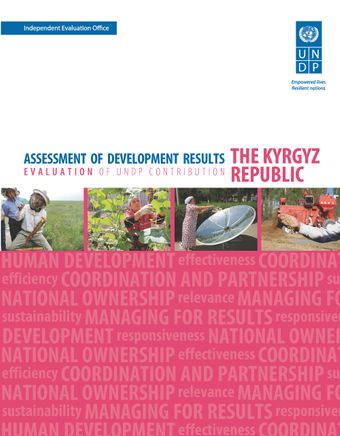
Assessment of Development Results - The Kyrgyz Republic
The Independent Evaluation Office (IEO) of the United Nations Development Program (UNDP) conducts country evaluations called “Assessments of Development Results (ADRs)” to capture and demonstrate evaluative evidence of UNDP’s contributions to development results at the country level.
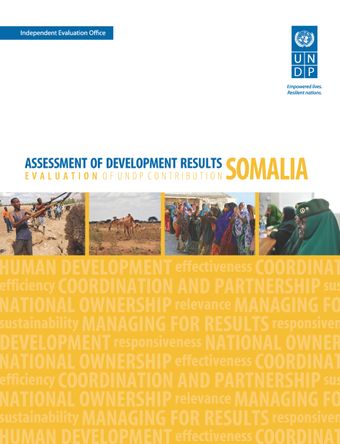
Assessment of Development Results - Somalia (Second Assessment)
This is the second Assessment of Development Results (ADR) conducted by the Independent Evaluation Office of UNDP in 2014 with a view to contributing to the realignment of the ongoing country programme (2011-2015) and the corresponding gender strategy to ensure consistency with: the Somali New Deal Compact, the UN Integrated Strategic Framework, the UNDP Strategic Plan (2014-2017) and the Gender Equality Strategy (2014-2017). In so doing the ADR will also contribute to the preparation of the new UNDP country programme that will begin in 2017.
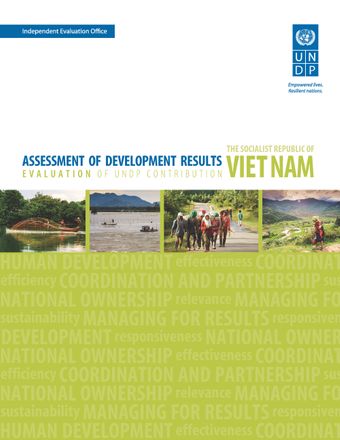
Assessment of Development Results - The Socialist Republic of Viet Nam (Second Assessment)
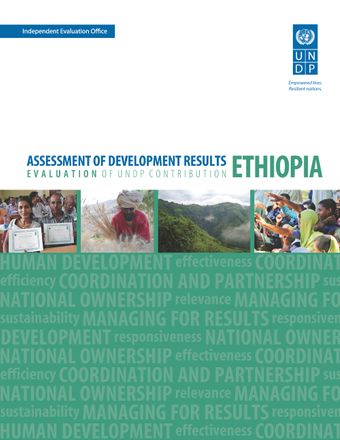
Assessment of Development Results - Ethiopia (Second Assessment)
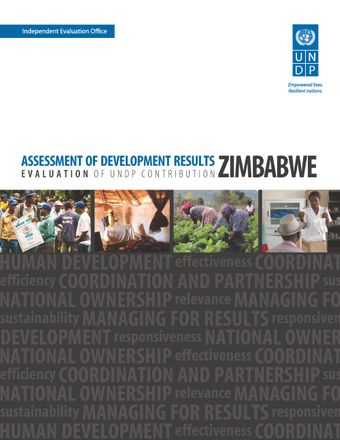
Assessment of Development Results - Zimbabwe
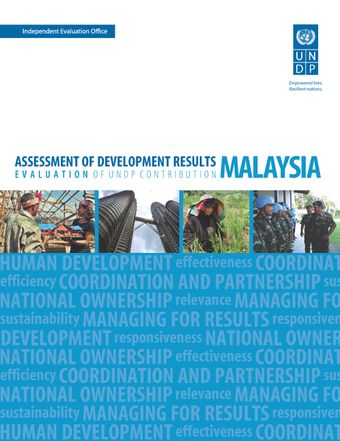
Assessment of Development Results - Malaysia
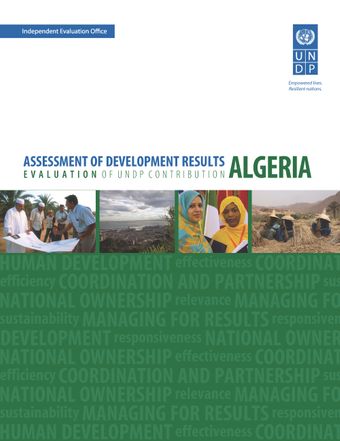
Assessment of Development Results - Armenia
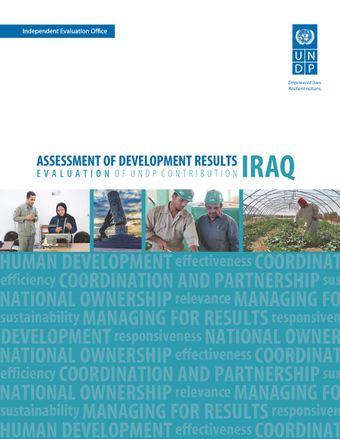
Assessment of Development Results - Iraq
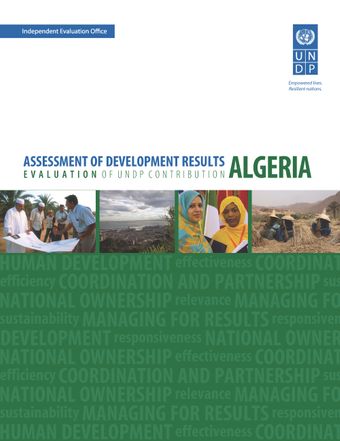
Assessment of Development Results - Algeria
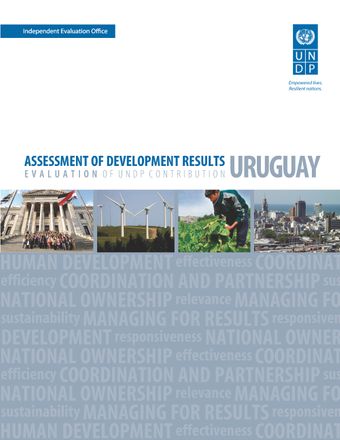
Assessment of Development Results - Uruguay
